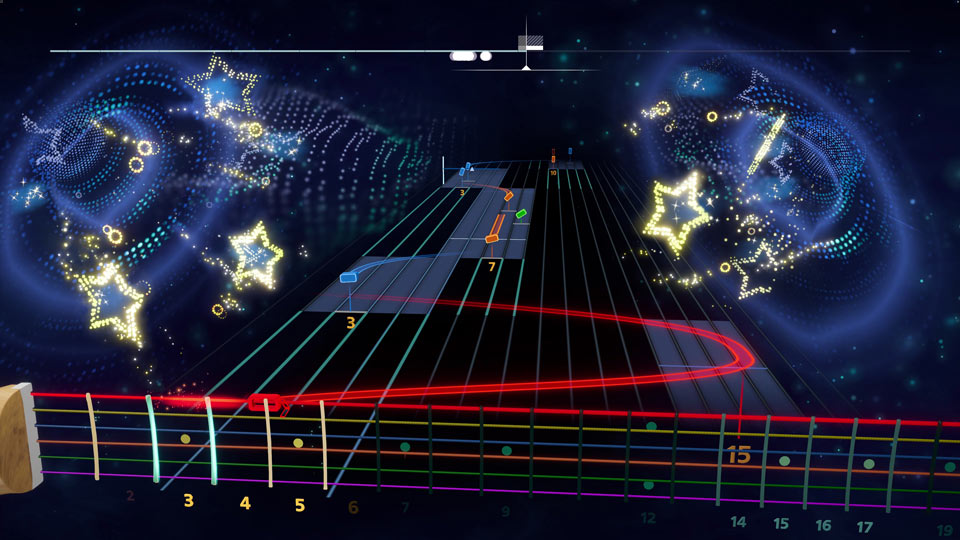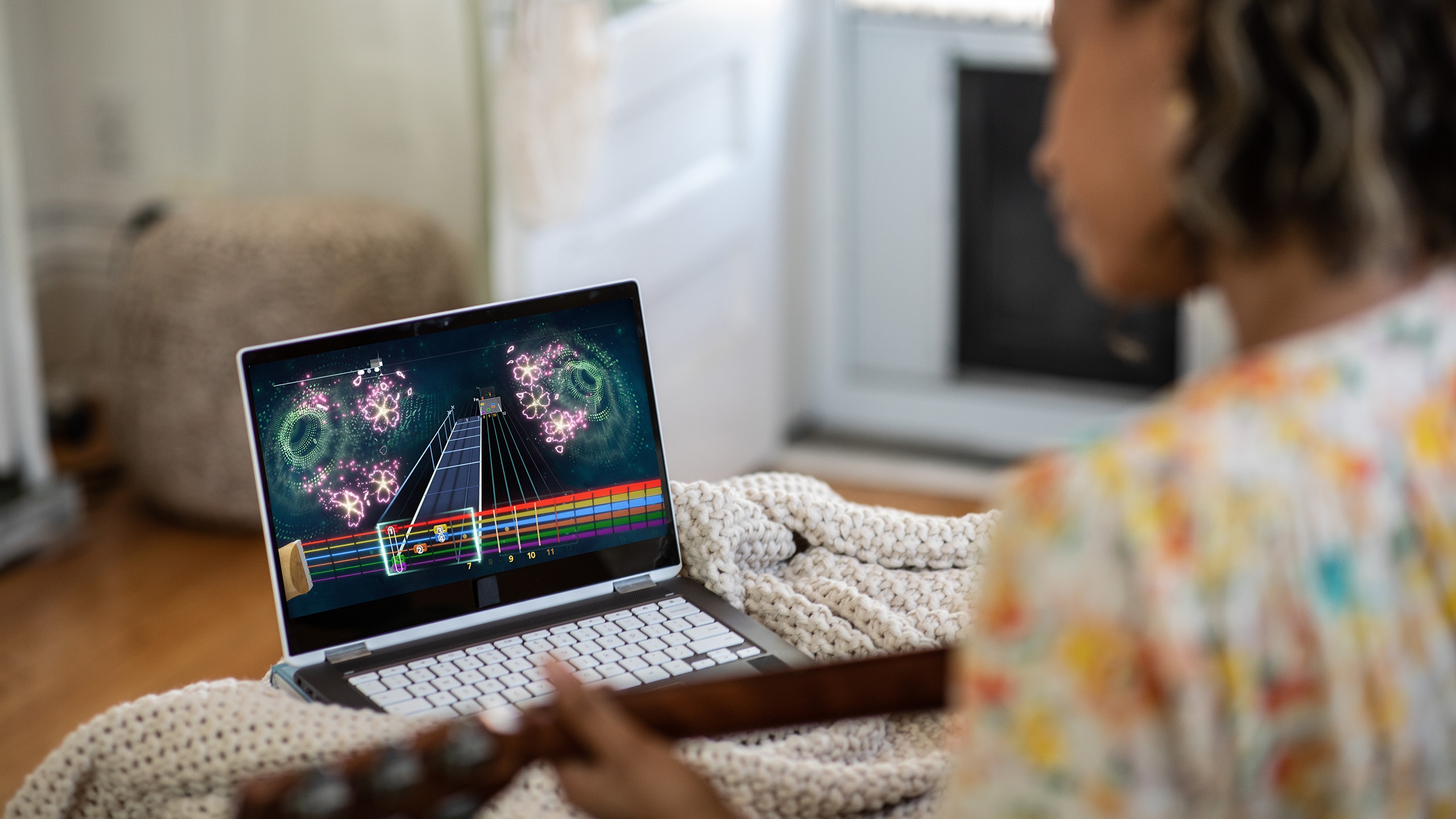Creating lessons and practice tracks for a platform like Rocksmith+ is quite a process and can be challenging at times.
I'm grateful to be working with a small team of incredible teachers and music producers, many with a decade's worth of teaching experience in different environments, from K-12 to college. They are amazing musicians with a vast array of knowledge in different idioms and musical stylings.
We typically get together each week or two in a meeting to discuss and answer a couple different questions: What should we be teaching next? What do our players want to see? What kind of style should we make this practice track? How long should this practice track be? How many variations of a technique should be featured in one track? How fast is too fast? Can we make multiple lessons and notetracks using one song? Is this lesson too easy? Too hard? Based on feedback and player data, where can we improve?
There are so many things to consider when it comes to y'all. We need to account for absolute beginners who haven't strummed their first chords yet, intermediate players who are looking to bring their technique to the next level, and advanced players who are looking to broaden their understanding of music theory. With this huge variety of players and a relatively small production team, casting a wide net with our curriculum has always been important. After drafting a list of common techniques, chord types, and exercises, comes time to produce lesson practice tracks to play along to.
A lesson practice track suggestion typically starts off as a technique or chord that fits our curriculum, and a genre of music. We want to teach useful techniques, but also put it in a fun song that serves as a good stylistic example.
For example, a suggestion might come about like so: "We need to make a lesson that teaches the basics of legato, and I think it'd be cool to make it in the style of a famous guitar player's music!". Or "We need a lesson to teach guitar bending, this'd be a great one for a blues style track." Someone else on the team might chime in, "If we do a blues track, it might be really cool to use it as an opportunity to teach walking bass lines!".
After we agree on a technique to teach and a style to teach it in, comes the rough drafts of a song for the practice track. One of the lessons members will compose and produce a rough draft song, and lightly notate it for other members of the lessons team to review. Usually, we'll start off with writing a relatively basic way of using the technique in question and develop it over the entire composition for variety.
Sometimes we get a little ahead of ourselves and make something way too hard to play, and sometimes it's so easy, it feels kind of boring to play. Sometimes we can tell the way things are notated will look really messy on the noteway and can lead to bad player experience. Lots of consideration also goes into mixing, production, and layers. After much refining, we'll "finalize" the lesson material and production of the song.
We'll add this lesson into the dev build for playtesting, and sometimes that's where we realize something is too hard or there needs to be some drastic arrangement change. It can mean time back at the drawing board, but we'll eventually settle on a final version. If it feels good to play in a game, and it sounds fun, then that's what matters. But wait! This isn't even the end of it!
In addition to the practice track, we also work with industry professionals and teachers to make lesson videos, to explain concepts further. We provide scripts that outline some additional tips, and maybe some extra things that aren't explained within the practice track itself. Things like music history, tidbits of theory, how to use some of these techniques or chords outside of the practice track. We also love to invite these professionals to give their own input and advice, and they typically give us extra tips we hadn't even thought of!
Both the practice track and lesson videos eventually ship into your game. Not going to lie, I always feel a bit nervous about how they'll be received, but generally feedback from all of you has been great, and extremely constructive. For example, because the Easy versions of piano lessons have been received well, we're thinking of ways to produce similar contents for guitar and bass.
At the end of the day, there wasn't a one size fits all solution when creating a curriculum for this platform, especially since every player's needs, musical preferences, and learning personalities are so different from each other. We do our best to create a relatively complete curriculum that encompasses the most common techniques, chord types, and fun genres of music to play. We're always learning from our players based on constructive criticism and data. We want to make learning fun, smooth and addictive, because playing music and gradual improvement is one of the best feelings in the world.
Brian Sheu is a Music Content Creator on Rocksmith+ by day, and professional gigging musician by night. He loves shredding, nerding out on stretchy chord voicings, hiking in the redwoods, and his 8-year-old forever puppy, Penny. And Birria Tacos. Lots of tacos.
New users can try Rocksmith+ free for seven days when they sign up for a 12-month subscription by either downloading the mobile app for iOS and Android or PC. Check out the full song library for more songs from your favorite artists. Rocksmith+ is available on PC exclusively through theUbisoft Store. For more on Rocksmith+, check out the official site.









